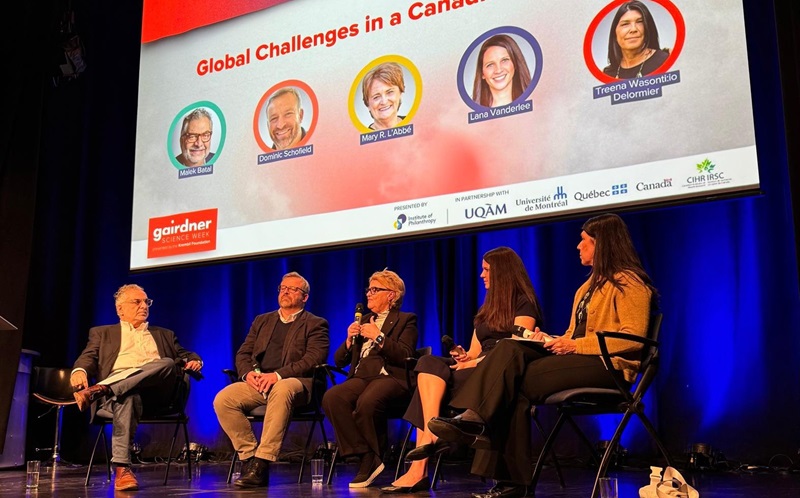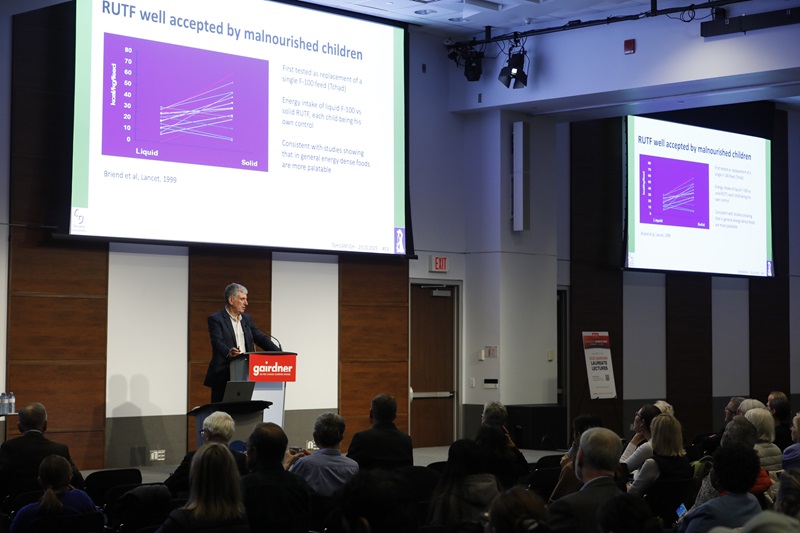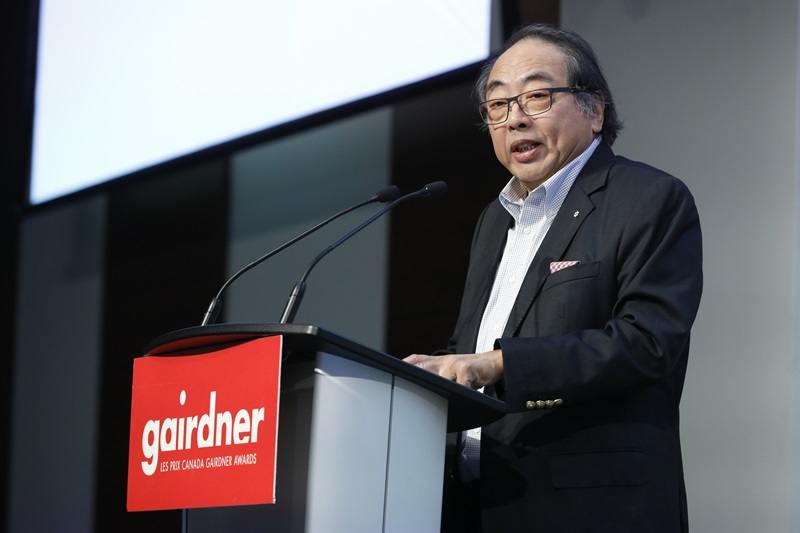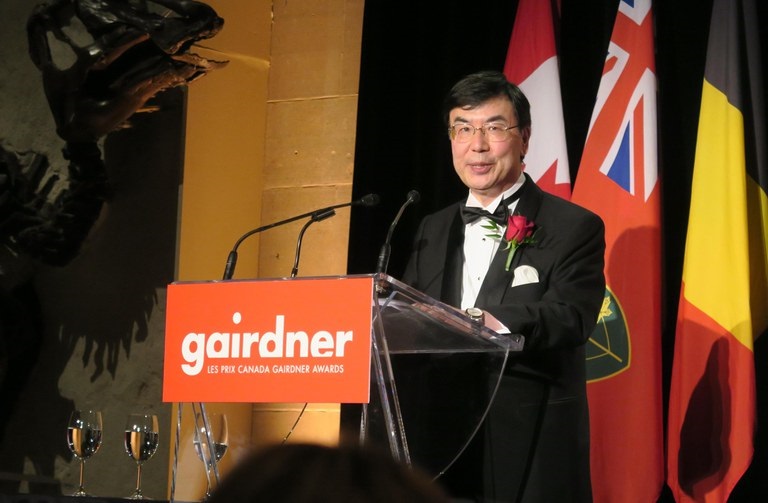Meet the 2022 Gairdner Early Career Investigators

The Early Career Investigator Competition invites investigators across Canada to submit an application to present their research alongside Gairdner Awards laureates as part of the Gairdner Science Week events in October. The 2022 winners, selected by the 2022 Gairdner Awards laureates, presented their research at the Laureate Lectures during Gairdner Science Week 2022
Ana Maria Copaescu
Assistant Professor; Physician-Scientist Immunology and Allergy Division of Adult Allergy and Clinical Immunology; Department of Medicine The Research Institute of the McGill University Health Centre McGill University Health Centre (MUHC)

Selected by Deborah Cook
Presentation: Penicillin allergies are prevalent in the health-care setting and associated with prescription of second-line antibiotics. The aim of this multicentre randomized controlled trial is to determine if a validated penicillin allergy clinical decision rule, the PEN-FAST, can enable the safe use of direct oral penicillin challenge (OPC) in patients labeled penicillin allergic. We will compare skin testing followed by OPC, if negative, in the outpatient allergy clinic to a direct OPC.
The ability to deliver point-of-care penicillin allergy testing for a large cohort of patients, without skin testing, will improve patient access to testing and utilization of preferred penicillin antibiotics.
Bo Wang
Assistant Professor, University of Toronto

Selected by Stuart Orkin and John Dick
Presentation: Single-cell RNA sequencing has demonstrated its unique advantage in inferring developmental trajectories. However, it has been suggested that in hematopoietic stem cells (HSCs), the phenotypical differences between cell states lie beyond transcriptomics (Takayama et al., 2021). We thus are motivated to develop an interpretable machine learning-based pipeline that can integrate multi-omics single-cell data to infer the continuous differentiation process. We believe HSC is the ideal cell population to validate our machine learning model because of its continuous differentiation process nature (Velten et al., 2017). The proposed approach will revolutionize our fundamental understanding of the HSC differentiation process, which is key to more accessible HSC-based therapeutics for acute myeloid leukemia patients.
Yannick Benoit
Assistant Professor, Department of Cellular and Molecular Medicine School of Pharmaceutical Sciences Faculty of Medicine, University of Ottawa

Selected by Stuart Orkin and John Dick
Presentation: Pioneer studies on tumor heterogeneity and cellular hierarchies demonstrated the existence of cancer stem cells (CSCs) presenting self-renewal and tumor-initiating functions. Colorectal tumors are hierarchically organized and governed by small populations of CSCs. Cancer stemness is recognized as the "root of cancer," It is crucial to understand CSC biology to develop novel therapies combating the disease at its source. My group studies epigenetic mechanisms contributing to the emergence and maintenance of CSCs in colorectal tumors. Our overarching goal is to identify new "context-specific" inhibitors of such epigenetic pathways, targeting colorectal CSCs in human patients, whilst sparing normal tissues. Combining pluripotency and CSC epigenetic determinants as readouts, we executed a multiparametric phenotypic screening pipeline and uncovered a new compound with high translational potential. This candidate blocks colorectal CSC functions in serial in vivo tumor transplantation assays.
Bowen Li
Assistant Professor, Department of Pharmaceutical Sciences, University of Toronto; Adjunct Assistant Professor, Institute of Biomedical Engineering, UofT; Faculty member, PRiME – A Next-Generation Precision Medicine Initiative

Selected by Pieter Cullis, Katalin Karikó and Drew Weissman
Presentation: While mRNA represents a novel vaccine class and provides advantages over traditional protein vaccines, one challenge is potentially insufficient immunity induced by mRNA alone. We have developed a self-adjuvanted lipid nanoparticle (LNP) technology that can increase the effectiveness of mRNA vaccines so that 1/10th of the doses currently being given would be needed to elicit protective immunity against SARS-CoV-2. This technology is now under preclinical development, which, once commercialized, would allow more people to be vaccinated in a shorter time, at a lower cost, and using less supply.
Anna Blakney
University of British Columbia, Assistant Professor in the Michael Smith Laboratories and School of Biomedical Engineering

Selected by Pieter Cullis, Katalin Karikó and Drew Weissman
Presentation: My laboratory at University of British Columbia strives to develop next-generation RNA vaccines and therapies, a field in which Pieter Cullis, Katilin Karikó and Drew Weissman have laid the foundation. It has been an exciting few years for RNA medicines, and we are looking forward to where RNA can continue making a difference in improving public health. We are developing a self-amplifying RNA platform, which enables much lower doses of RNA compared to messenger RNA, as well as longer of duration of expression that will enable applications in immunotherapies for diseases such as cancer. Vive le RNAissance!
Isabelle Malhamé
Assistant Professor, McGill University; Physician, McGill University Health Centre; Junior Scientist, Research Institute of the McGill University Health Centre

Selected by Zulfiqar Bhutta
Presentation: I will outline my progress and future direction in the following research domains: 1) Early detection and prevention of maternal morbidity (including the development of tools to predict and diagnose acute complications), 2) Innovation in the management of high-risk conditions across the pregnancy continuum (including hypertensive disorders, venous thromboembolism, structural heart disease, and arrhythmias), and 3) Quality improvement and patient safety (including the creation of a national obstetric survey system for reporting severe maternal morbidity events).







.tmb-cfthumb_fb.png?Culture=en&sfvrsn=2ead4e4f_1)



-min-(1).tmb-cfthumb_fb.jpg?Culture=en&sfvrsn=ef561fc0_1)

